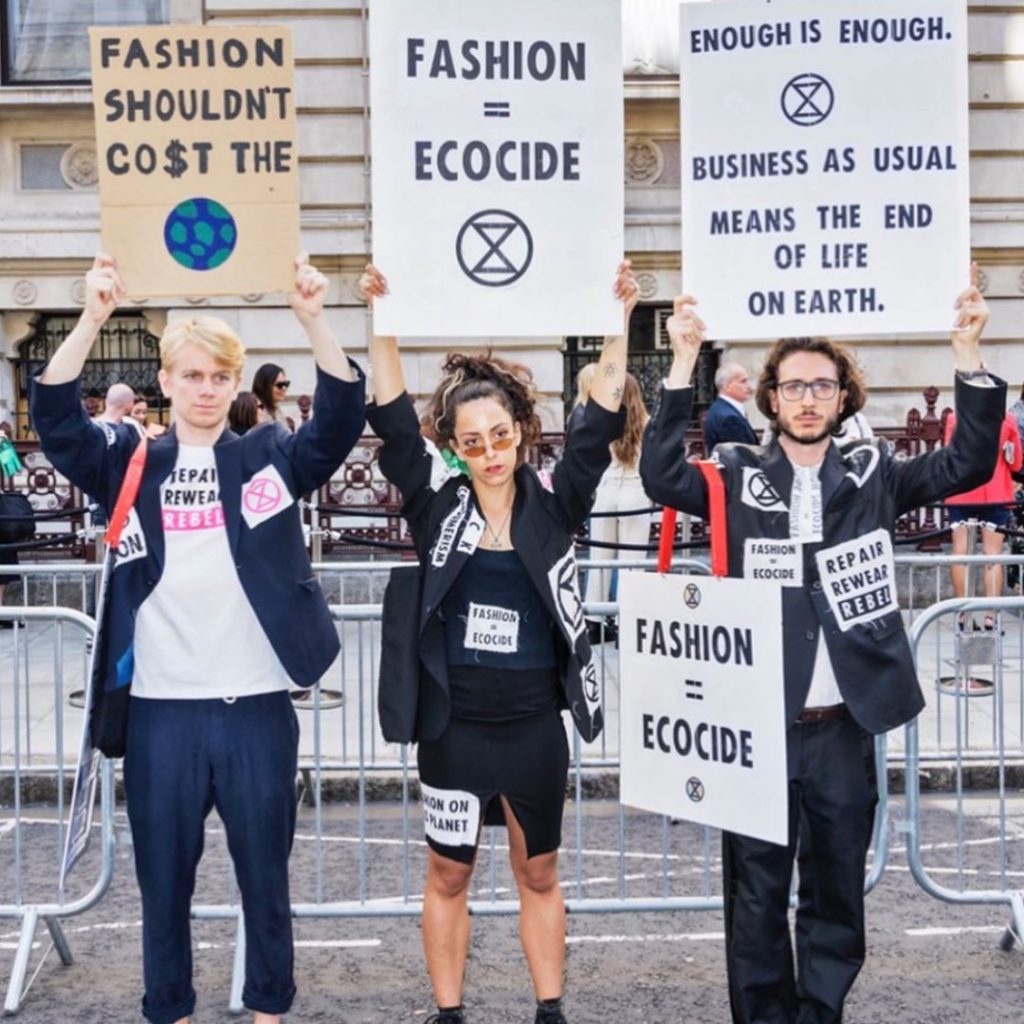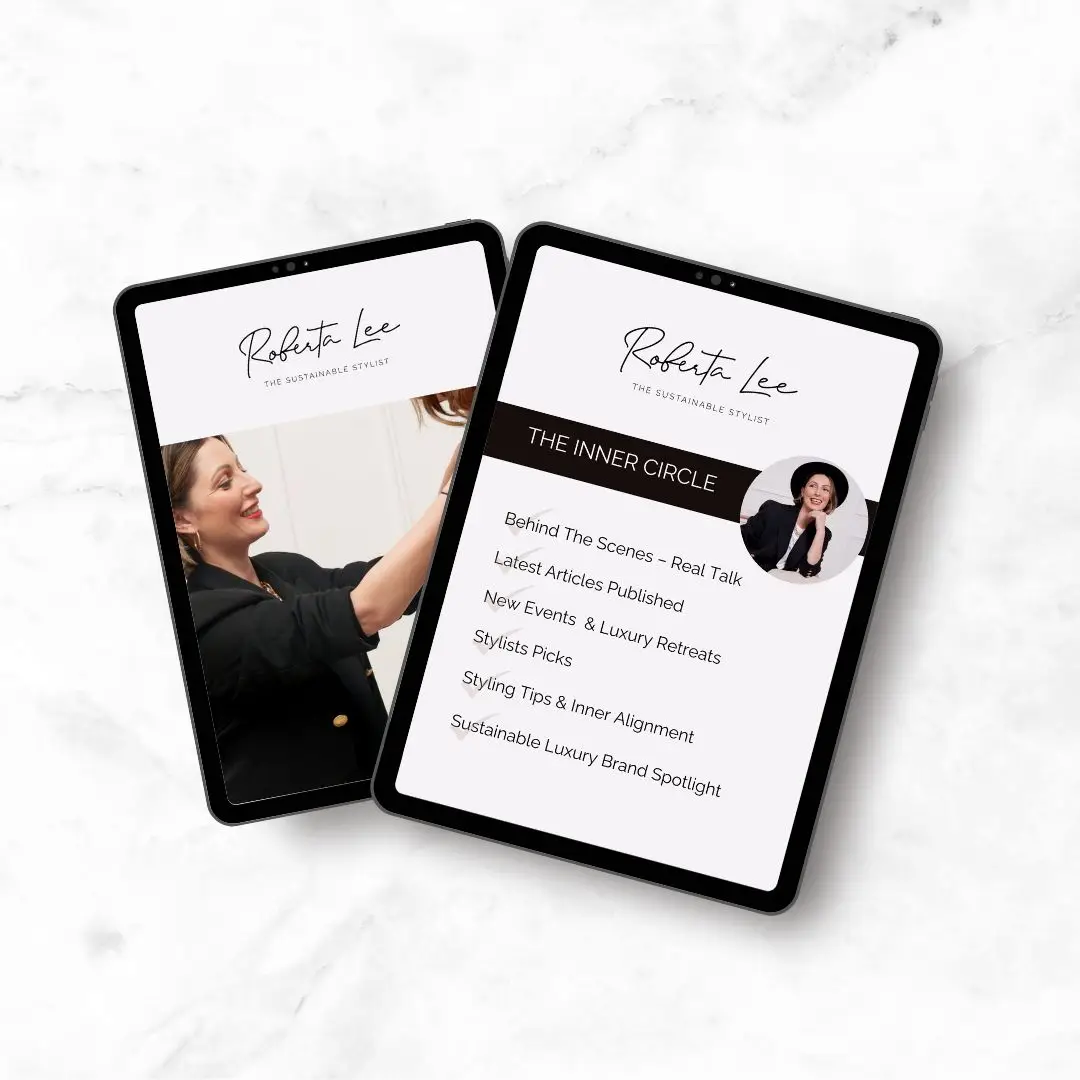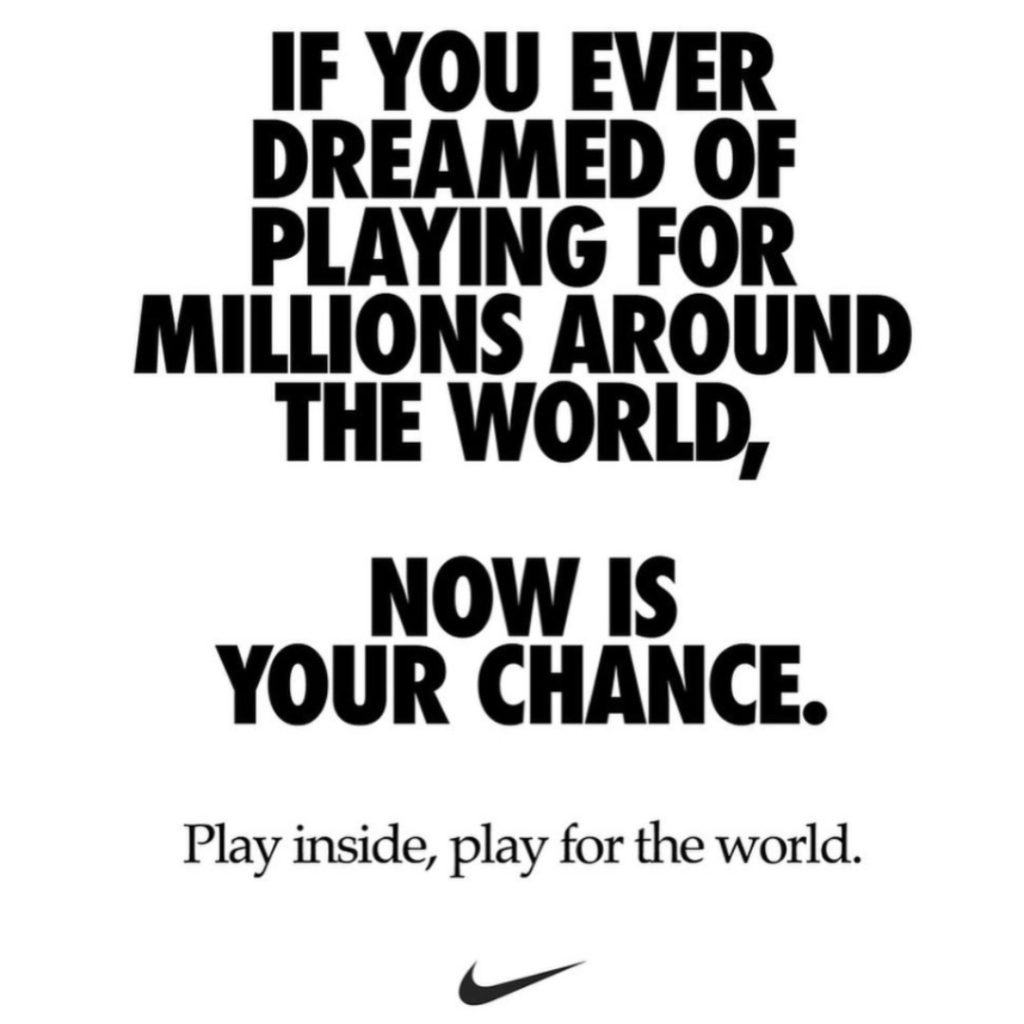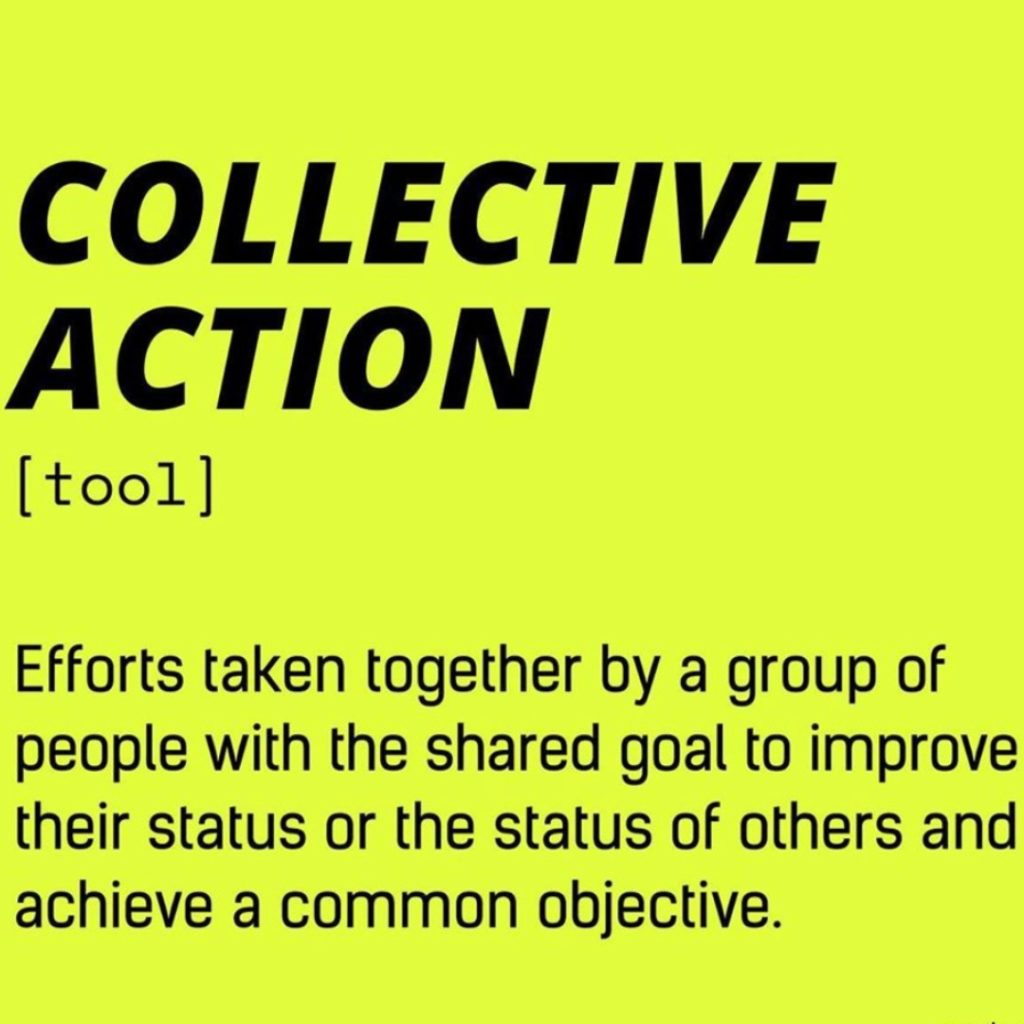For this year’s Ethical Brands for Fashion Revolution event, I had the pleasure of hosting an expert panel with Alice Wilby and Bel Jacobs, discussing all things fashion activism in support of Fashion Revolution week.
As two well-known fashion activists and Extinction Rebellion coordinators, these ladies were perfectly positioned to share their insight and wisdom on the subject of fashion activism and why it matters. Don’t worry if you didn’t catch the live panel; in this blog, I’ll be sharing highlights from our wonderful session!
Find out more about Alice and Bel…
Before I kick off with the panel highlights, here’s a little bit of background on these two wonderful women.
Alice Wilby
IG @alicewilby
Alice began her career in sustainable fashion in 2009, after becoming fed up with social and environmental injustice within the industry. And in recent years, the rise of fast fashion inspired Alice to take action and join Extinction Rebellion. Alice also teaches others about sustainable fashion, hoping to pass her knowledge on to the next generation.
Bel Jacobs
https://www.beljacobs.com/ / IG @beljacobs_com
Once a fashion editor for the Metro, the collapse of Rana Plaza in 2013 caused Bel to reassess her career. Today, Bel is a writer, speaker, blogger and Extinction Rebellion activist focused on the toxic fashion system.
Fashion Activism Panel Highlights

What does ‘Fashion Activism’ mean and why is it important?
Alice: We are on the brink of a climate emergency and ecological collapse. The capitalist environment we are living in is ruthless, and we are facing a humanitarian crisis where garment workers are unable to eat because they have not been paid for the work they have completed.
Fashion activism is important because we need to stand up and demand systematic change!
Bel: The issues in the fashion industry are not going away; they are getting stronger. The fashion industry is set to rise by 63% by 2030 according to recent reports. This is not an industry that is under any threat, and so it can afford to provide better conditions for garment workers.
An activist is an agent for positive change, someone who asks for better and questions the systems that lead to so much inequity and human, animal and planetary suffering.
Fashion is an aspect of activism that everyone can relate to, as everyone has the need for garments.
What are you focused on right now? What is your goal or outcome?
Bel: We’re having to rethink what activism is in lockdown. Is it only done through social media, and if so, how effective is that? Right now, I am focused on the workers – I can’t believe how callous the fast fashion brands have been! I want to share the stories of the garment workers to raise awareness of the way fast-fashion brands are treating them.
*Note: To discover the ethical brands Bel is promoting, head over to https://www.beljacobs.com/
Alice: The great thing about being part of Extinction Rebellion is that you are part of a community that takes regeneration seriously. Regeneration of culture, people, the planet and nature – this is the core of what Extinction Rebellion is about. Regeneration and caring for each other are the other side of activism. Looking at how we can support and nurture our own communities because we have to support the workers, who, as the most marginalised people in the supply chain, are suffering the most.
I recently used a panel debate to raise funds for humanitarian causes. I’m also trying to offer support to the global network that really needs it right now.
Alice and Bel discuss how the fashion brand Nike responded to the pandemic
Alice: [Nike] Sent all of their workers home, paid. Shut their retail spaces and started a global campaign inspiring their community around the world to stay home.“Stay home, protect the world. It’ll be interesting to see if they can carry that messaging over into talking about the climate crisis.
ACCESS THE INNER CIRCLE
Exclusive ‘Inner Circle’ access to BTS Real Talk, Styling Tips, Luxury Retreats, Sustainable Luxury Brand Spotlight and more…

Nike have proven they can remodel their business practice and the use of their resources. That they can put health, community and preservation at the core of what they are doing.
Bel: What we need to ask for is systemic change, as it is harming the most marginalised and rewarding the people ‘at the top’. For example, the richest man in Spain is the owner of Zara.
Systemic change means looking at how society needs to be structured, the rat race, influencers and rethinking “Profit is king”. We need to look at the role of the fashion industry in a world that doesn’t exploit and abuse.
Nike is a great example that fashion brands have the platform to talk about these issues – the production of shoes is a minor part of their activities. Could the fashion brand of the future be a multi-messaging vehicle where clothes are just one part and the rest is about activism, communication, regeneration, resilience and adaptation?
Will Nike keep this up past COVID-19? One to watch.

How do we get people who don’t think activism is for them to engage?
Alice: Grief is a useful tool to navigate from and use the pain as a warning sign that action is needed. You don’t need to take part in Extinction Rebellion activities, but communication is important, understanding what you’ve heard, being led by science and then communicating that to friends, family and community. It’s about communicating the emergency and the truth and then empowering people to come through all of that pain and anger and taking action instead.
It’s about keeping the line of communication open and getting as many people involved as possible, and raising awareness. “Don’t feel guilty about what you didn’t know”. Once people know they are no longer in the dark, and have a moral choice to do something or ignore it.
What can people do to get started and make their fashion activism more impactful?

Alice: In the current climate, the main thing to have is compassion because when we have compassion, we can understand where somebody else is coming from, and communication flows much better. From this, people can become more centred and come from a place of more understanding, and the work they want to do will be more compassionate, and it will be more powerful activism.
Bel: Contemplate and understand the narrative. And take this time to educate yourselves.
No change comes from a place that is comfortable.
Alice: We need to look at the whole web that makes fashion and how we work with it. How are we using social media – are we using it to empower our community and make them feel better about their choices, or are we using it to flog loads of stuff? How can we make activism better? It starts by calling for systemic change and calling out how the system is complicit in keeping us down.
I hope you enjoyed this interview as much as I did! What are your thoughts on fashion activism? Let me know in the comments below. And if you want to learn more about these lovely ladies, check out their socials and show your support.




